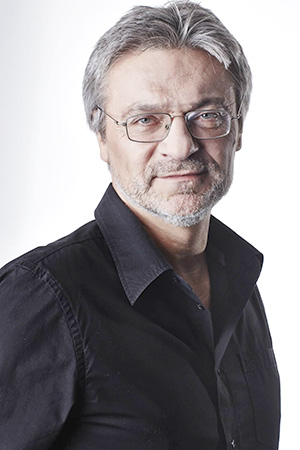
Photo by Michał Radwański/The KARTA Centre
If Polish history were more publicised, no one would dare to call German camps “Polish”.
In conversation with Zbigniew Gluza, President of the KARTA Centre, which specialises in recording and promoting Poland’s recent history.
Why do international audiences know so little about World War II in Poland?
The knowledge on World War II seems to be roughly based on two most prominent narratives: Western and Soviet. The Western narrative’s focus has been primarily on the Holocaust, and it only rarely addresses the issue of the terrible atrocities targeted at Polish society. Poland has been marginalised in the narrative, which is probably due to a sense of guilt connected to the way Poland was betrayed by her Western allies at the end of World War II. However, it is even more outrageous that the Soviet narrative is still respected. This story represents the Kremlin as an ally of the West in the struggle against the Germans, and not as an invader responsible on equal terms with Germany for the outbreak of World War II. Throughout the war, the Soviets perpetrated the atrocities that can easily be compared to what happened during the Great Purge in 1937–1938.
And what about the Polish perspective?
Sadly, we have not been able to break through with the account of our experience, as it were – that we had two totalitarian regimes which eventually took away Poland’s independence for half a century (but were unable to obliterate our identity).
Why is that?
In the 1990s, all political parties were of the opinion that addressing historical issues would only undermine the position of the country economically, socially and internationally, as it would have a negative effect on the relationships with our neighbours. As an NGO, KARTA is dealing with an immediate past, and we have been trying to encourage the state authorities to do something in this area. To no avail, however, because the state has failed to make any systematic effort.
Despite institutional change, we are still waiting for the holistic account of history that represents the Polish perspective in the world. We have never been able to represent in full the implications of the German and Soviet invasions of Poland.
So this is why we are so often told about “Polish camps”?
This is one of the consequences of the general negligence. If Polish history were more publicised, no one would dare to call German camps “Polish”. It is extremely unnerving that the country afflicted by genocide (at least 12 million out of 35 million Polish citizens were faced with different forms of repression) is described with words that suggest institutional violence.
Why aren’t we able to fight this mendacious language more effectively?
It is not enough to respond to media reports and protest against “Polish camps” as a disgrace and absurdity. This is purely reactive and has little chance of producing a sustainable effect. Those who apologise will eventually make the same mistake again. However, these mistakes are not only due to historical ignorance. Some people want to shift the responsibility for the atrocities onto Poland. That being said, we have launched our first pre-emptive strike, so to speak: the book Oblicza totalitaryzmu [Faces of Totalitarianism] has just been published by the Institute of National Remembrance. The book is available only in Polish, but once it becomes translated into foreign languages it can be used to raise awareness internationally.



